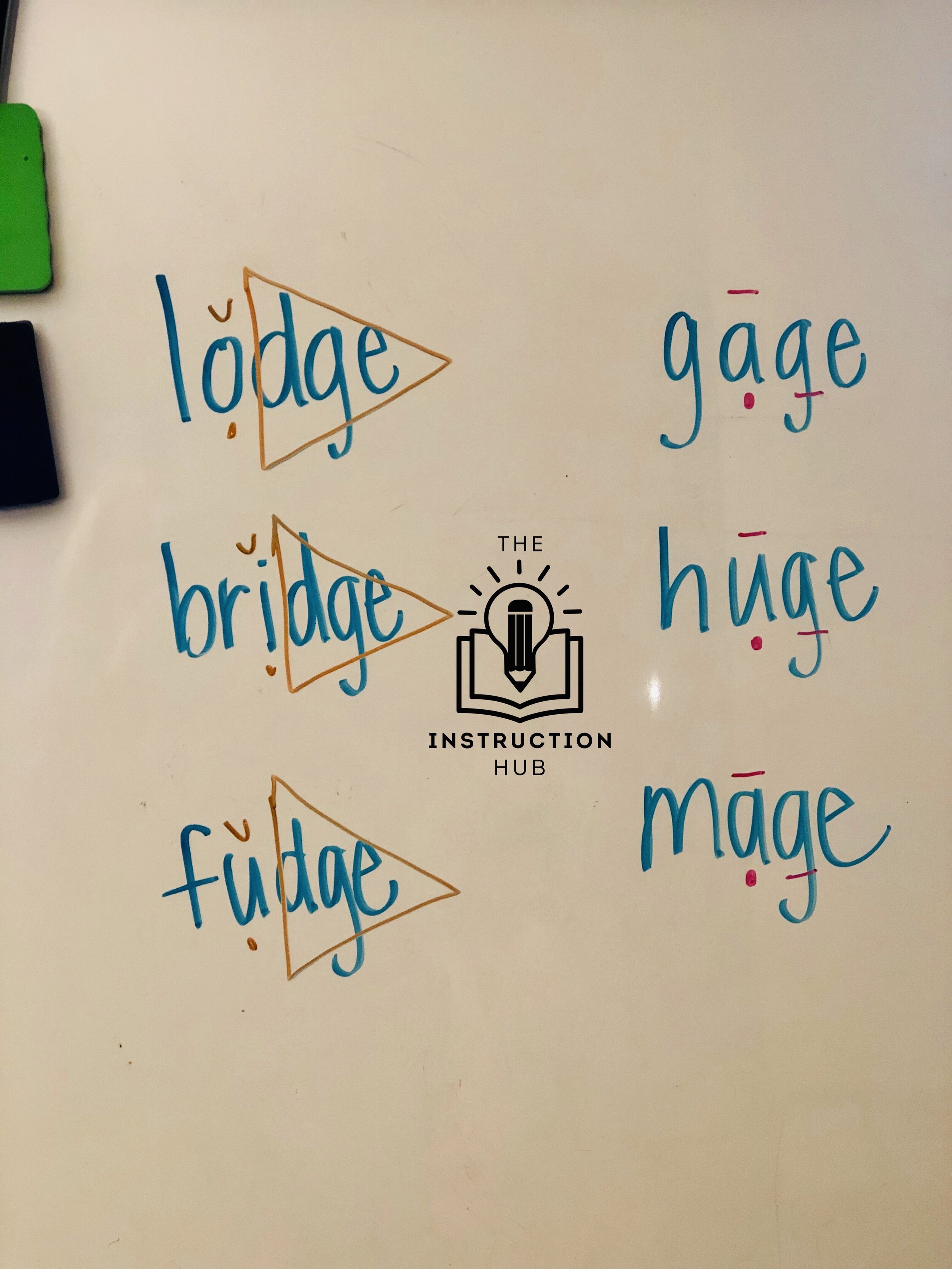Discover it!
Discovery teaching can be a fun and appropriately challenging method of teaching IF the background knowledge is established.
I have personally experienced having this perfectly (well, in my mind - is it ever really perfect?) written lesson, with crisply laminated materials, fantastic colors in dry erase markers....only to have the lesson crash.and.burn! I have had lessons that even the best colors in Flair pens could not save.
So what do I mean by discovery teaching? Discovery teaching is using prior knowledge to connect to or introduce new learning.
The error I made was assuming the student was secure in a concept and was ready to "layer" on new pieces. There have been times that I was spot-on, and times when it was a solid nope.nope.nope. You will want to make sure that a student knows the letters/sounds, syllables, or rules that are associated with the new learning before leading them to discover the new concept.
I would also say that you should plan for discovery. If that is not going well then have a backup plan for direct instruction. If it is a new phonogram (letter/sound) you are working on, make sure that after the student "discovers" it, they still trace and write it saying the formation and sound. You still want to make a strong memory!
Here is an example of a discovery lesson I did. I hope this is helpful!
1. My students knew that g says /j/ when followed by e, i, or y. They also knew that -dge says /j/ in a one syllable word after a short vowel.
2. They knew the silent e syllable type, so they were aware that the vowel would be long in the second column of words based on the pattern of the syllable type silent e.
3. I had them 'flag' the dge and label the short vowel. I had them underline the g and label the vowel sound based on the syllable type.
4. They "discovered" that when you hear a /j/ sound after a long vowel, you will usually use the g spelling.
This information is the intellectual property of ©2021 The Instruction Hub. Do not use or repurpose without expressed permission from The Instruction Hub. Please give The Instruction Hub an attribution if you choose to use, reference, or quote/paraphrase copyrighted materials. This includes but is not limited to blogs, social media, and resources.


